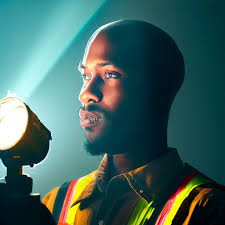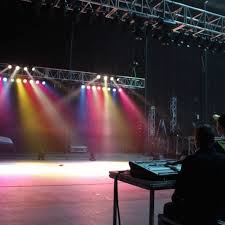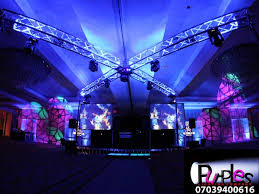![]()
If you’ve landed on this article page, you’re probably searching for a
good business idea—an idea that’s light on the pocket but heavy on
returns, promising both a fulfilling journey and potential profit.
|
How to be a Lighting technician
If you are interested in a career in the film industry, becoming
a film lighting technician can be a great choice. Film lighting
technicians, also known as gaffers, are responsible for setting
up and adjusting lighting equipment on movie sets. They work
closely with the cinematographer and director to achieve the
desired look and feel of a scene. In this article, we will
discuss the essential tips and tricks for becoming a successful
film lighting technician.
Lighting technicians use their technical skill to set up and
operate lighting for TV shows, films and concerts. As a lighting
technician, you'll work across all types of programmes and may
cover productions inside studios or outside on location. You'll
help to create the right atmosphere to set a scene and evoke an
audience's response.
The work demands high-level technical and creative skills to
follow instructions that ensure the desired production lighting
is achieved.
Profitability: Light Technician take home depends upon the type
of production and your level of experience, but you can usually
earn between N1M and N20m. Most lighting work is done on a
freelance basis, so you must expect to negotiate rates according
to your experience and the type of production you'll be working
on.
Work settings vary. You might be filming in a television studio
(which may be hot and crowded), on a film set, on location in
buildings not designed for an influx of high-tech lighting
equipment or on outside broadcasts, where you may have to deal
with adverse weather conditions.
The work can be physically demanding as you'll be lifting and
carrying equipment. You'll also need a good head for heights as
work often takes places on walkways above the studio floor, on
ladders, scaffolding or cranes.
Protective clothing, including hard hats, safety boots and
overalls, is often required to meet health and safety
requirements.
You'll need to have:
technical knowledge and lighting skills
manual dexterity and a good level of physical fitness
the ability to work well under pressure and to deadlines
time management and organisational skills
the ability to work as part of a team
effective communication skills
attention to detail
creative flair
problem-solving ability
IT and numeracy skills
understanding of health and safety legislation and procedures
a driving licence - may be required and can be helpful for
getting to different locations, and for transporting equipment
if needed.
To be successful at freelance work, you must have good
networking skills, be willing and able to deal with financial
matters, such as tax and invoicing, and be customer focused.
Specialist courses are available in areas such as lighting
design, technical lighting and safe working with lights and
cameras.
Career prospects
Your career prospects will depend to a large extent on your
skills, experience and contacts within the industry. Progression
within film or TV may lead to roles such as best boy (or senior
electrician) or gaffer (also known as the chief electrician).
On a film or high-end TV drama, the lighting department is run
by the director of photography. There may be occasional
opportunities for senior staff in lighting to move into this
role, but it's more likely to be filled from the camera
department.
Most lighting technicians eventually specialise in a particular
type of work because of the specific demands and knowledge
required for different types of productions. In television, for
example, you might specialise in live shows or outside
broadcasts.
If you're working as a freelance technician, you may be able to
supplement your income by training others, working for
recognised course providers. Or you could offer your services to
the photographic industry in addition to broadcasting, film and
video.
Becoming a successful film lighting technician requires
knowledge, experience, and networking. You can gain knowledge
and experience by taking film courses, working as an intern, or
starting as a lighting assistant. Building your network is
essential in the film industry, and you can do this by attending
industry events and joining film organizations. Investing in
quality equipment is essential for doing your job effectively,
and you need to learn to work under pressure. Finally, staying
up to date with technology is critical in the film industry, and
you can do this by attending workshops and seminars and reading
industry publications.
Get our practical training guide on how to be a Light
Technician. We’re here to help you hone your raw talent and
teach you the technical skills you need. This resource is an
essential starting point for anyone serious about pursuing a
career as a Light Technician.
|







